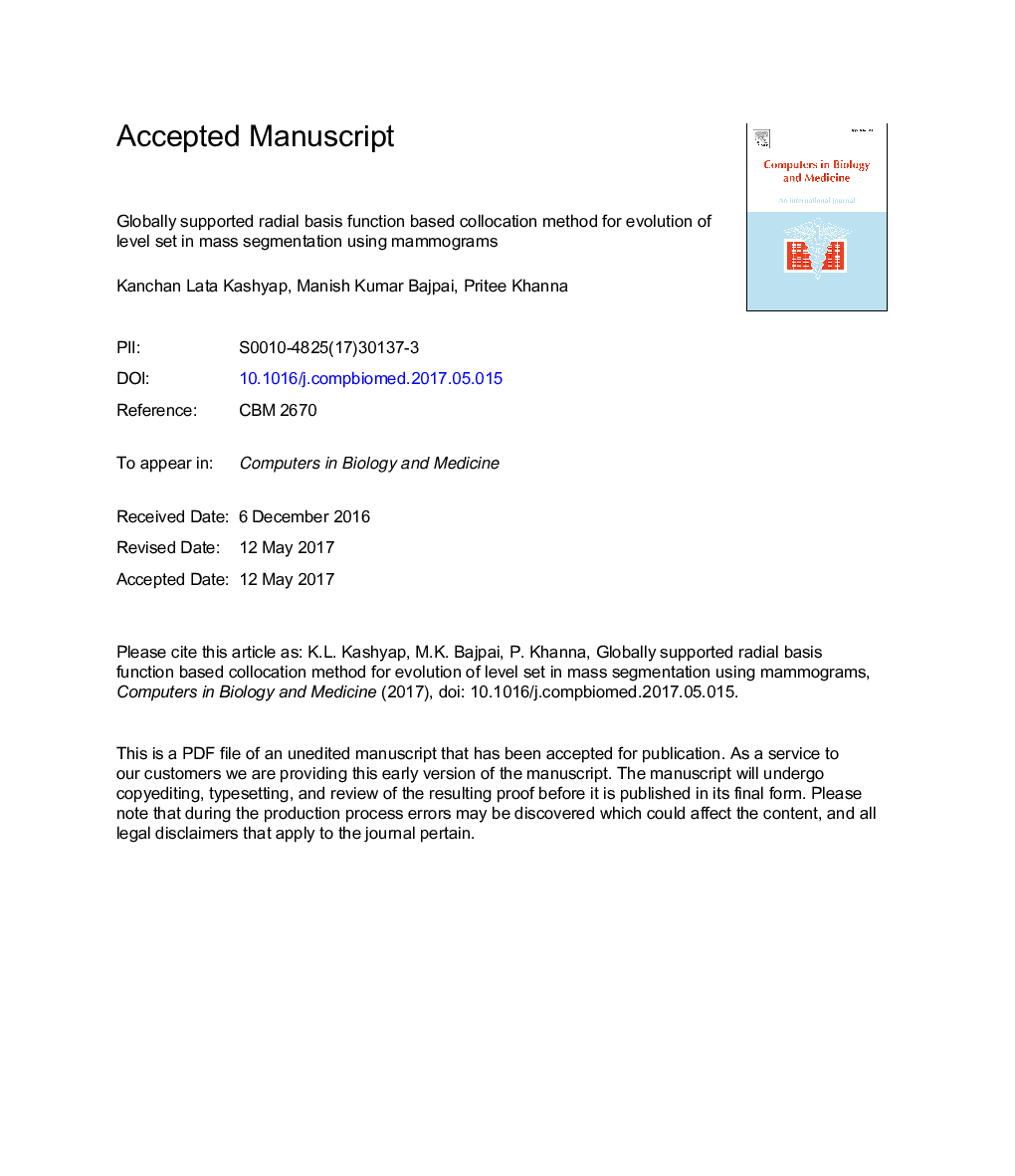| کد مقاله | کد نشریه | سال انتشار | مقاله انگلیسی | نسخه تمام متن |
|---|---|---|---|---|
| 4964795 | 1447933 | 2017 | 30 صفحه PDF | دانلود رایگان |
عنوان انگلیسی مقاله ISI
Globally supported radial basis function based collocation method for evolution of level set in mass segmentation using mammograms
ترجمه فارسی عنوان
در سطح جهانی، روش جابجایی مبتنی بر تابع شعاعی برای تکامل سطح تعیین شده در تقسیم بندی توده با استفاده از ماموگرام پشتیبانی می شود
دانلود مقاله + سفارش ترجمه
دانلود مقاله ISI انگلیسی
رایگان برای ایرانیان
کلمات کلیدی
ماموگرافی، عملکرد پایه شعاعی مبتنی بر مش، روش اختلاف محدود ویژگی های تصویر آماری باینری، الگوی دودویی محلی،
موضوعات مرتبط
مهندسی و علوم پایه
مهندسی کامپیوتر
نرم افزارهای علوم کامپیوتر
چکیده انگلیسی
Computer-aided detection systems play an important role for the detection of breast abnormalities using mammograms. Global segmentation of mass in mammograms is a complex process due to low contrast mammogram images, irregular shape of mass, speculated margins, and the presence of intensity variations of pixels. This work presents a new approach for mass detection in mammograms, which is based on the variational level set function. Mesh-free based radial basis function (RBF) collocation approach is employed for the evolution of level set function for segmentation of breast as well as suspicious mass region. The mesh-based finite difference method (FDM) is used in literature for evolution of level set function. This work also showcases a comparative study of mesh-free and mesh-based approaches. An anisotropic diffusion filter is employed for enhancement of mammograms. The performance of mass segmentation is analyzed by computing statistical measures. Binarized statistical image features (BSIF) and variants of local binary pattern (LBP) are computed from the segmented suspicious mass regions. These features are given as input to the supervised support vector machine (SVM) classifier to classify suspicious mass region as mass (abnormal) or non-mass (normal) region. Validation of the proposed algorithm is done on sample mammograms taken from publicly available Mini-mammographic image analysis society (MIAS) and Digital Database for Screening Mammography (DDSM) datasets. Combined BSIF features perform better as compared to LBP variants with the performance reported as 97.12% sensitivity, 92.43% specificity, and 98% AUC with 5.12 FP/I on DDSM dataset; and 95.12% sensitivity, 92.41% specificity, and 95% AUC with 4.01FP/I on MIAS dataset.
ناشر
Database: Elsevier - ScienceDirect (ساینس دایرکت)
Journal: Computers in Biology and Medicine - Volume 87, 1 August 2017, Pages 22-37
Journal: Computers in Biology and Medicine - Volume 87, 1 August 2017, Pages 22-37
نویسندگان
Kanchan Lata Kashyap, Manish Kumar Bajpai, Pritee Khanna,
